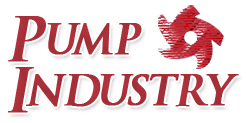The drive for the beverage industry to embrace sustainability is coming from several directions. Consumers increasingly demand sustainably produced products, and investors view sustainability as crucial for long-term profitability and risk reduction. In addition, communities are concerned about the impact of manufacturing on their local environment, and governments and regulators are enforcing stricter environmental standards.
Improving water management has become a critical component in sustainability initiatives within the beverage industry. Why? Beverage manufacturing is particularly water-intensive, relying heavily on water for production, processing, and cleaning. By implementing more sustainable practices, companies can reduce the industry’s significant water footprint, preserving this vital resource in the face of growing water scarcity.
Sustainable water management is also essential for ensuring long-term business success. Sustainable practices in the beverage industry can reduce costs, mitigate risks associated with water shortages, and enhance the industry’s resilience to climate change.
Here are three beverage manufacturers leading the way in sustainable water management, with insights on how they are solving water.
1. Maximizing efficient water usage for a beverage manufacturer in Indianapolis
To better manage this scarce resource, beverage manufacturers can find success by focusing on processes that maximize the use of source water, enable the recycling and reuse of water, and that minimize wastewater.
Challenge: When one of the world’s largest soda bottlers expanded their plant in Indianapolis, Indiana, they needed an ingredient water system that could double capacity and improve their ability to rapidly switch from one beverage and package style to another based on customer demand.
Solution: The company chose a new 500 gpm ingredient water system from Xylem, including green sand filtration for iron removal, dechlorination, reverse osmosis filtration, pumps, controls and storage tanks. The new system included a service agreement from Xylem that offers ongoing maintenance for both the new equipment and a large installed base of third-party water treatment systems.
Results: The new ingredient water system has operated with zero downtime, and the recovery reverse osmosis (RO) system ensures that more than 90% of the water used goes into the product.
2. Bottling plant uses UV disinfection to ensure safety and reduce hazardous processes
UV systems provide a chemical-free disinfection solution for the beverage industry, helping beverage manufacturers and bottlers improve the taste of the water, maintain safety standards, and increase water reuse.
Challenge: The second largest bottling company outside the United States needed to expand its bottling plant line in Telangana, India. The plant sourced water from nearby lakes and rivers, which contained a rare type of bacteria that needed to be eliminated in the treatment process.
Solution: The company selected a chemical-free, UV system from Xylem that eliminates the bacteria and guarantees performance. The ATG UV system can treat up to 5,000 m³/h and operate as low as 10 m³/h, increasing treatment capacity and flexibility.
Results: The UV system enabled the bottling plant to avoid hazardous processes and byproducts when treating the water, maintain safety standards, prevent product spoilage, and meet its sustainability objectives.
3. Craft brewer’s wastewater treatment solution protects local ecosystem
Just as beverage manufactures need to ensure that high-quality water goes into their products, they also need to ensure that wastewater released into the environment does not harm surrounding ecosystems and communities.
Challenge: As the fourth-largest craft brewer in the United States, New Belgium Brewing strives to produce world-class beers while promoting environmental stewardship. When the company began building a brewery in Asheville, North Carolina, capable of producing 500,000 barrels of beer per year, it needed an advanced solution for wastewater treatment.
Solution: Xylem designed and built a customized on-site wastewater treatment solution for the Asheville brewery, including an ADI anaerobic membrane bioreactor. The system can treat up to 142,000 gallons (537 cubic meters) per day of wastewater and generates a final effluent with concentrations for biochemical oxygen demand and total suspended solids of less than 230 mg/l.
Results: The new treatment system at the brewery generates a consistent, high-quality effluent that exceeds local treatment requirements. The compact system also meets noise and odor limits, preventing any disruption to the surrounding neighborhood.


